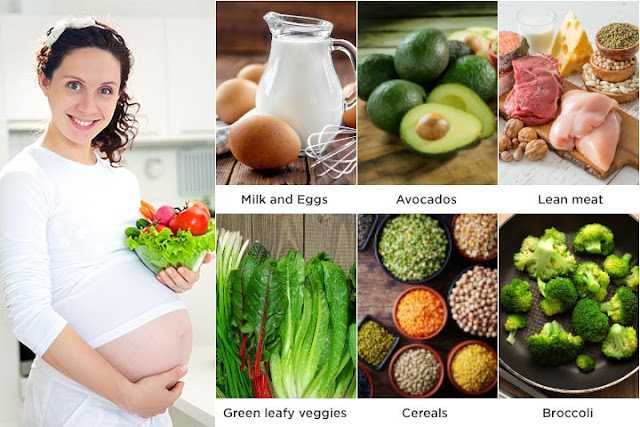EATING FOR TWO: GOOD DIET AND NUTRITION DURING PREGNANCY
 There is no better feeling than the movement of life inside you so good diet and nutrition and the right balance of it is very important for your baby to grow and develop. Although morning sickness, vomiting and nausea during the first few months of pregnancy can make this difficult, so try to eat a sensible and well-balanced diet. It helps make your pregnancy more comfortable. A balanced diet can also minimize constipation, fatigue, morning sickness and a host of other pregnancy symptoms.
There is no better feeling than the movement of life inside you so good diet and nutrition and the right balance of it is very important for your baby to grow and develop. Although morning sickness, vomiting and nausea during the first few months of pregnancy can make this difficult, so try to eat a sensible and well-balanced diet. It helps make your pregnancy more comfortable. A balanced diet can also minimize constipation, fatigue, morning sickness and a host of other pregnancy symptoms.What is a balanced diet?
The establishment of a healthy pregnancy diet is the equivalent as the normal healthy eating routine. A balanced meal consists of a mix of lean protein and calcium, whole grains, vegetables, a rainbow of fruits and healthy fats, with usually a little more calories and nutrients to nourish the baby. The type of diet we encourage, during pregnancy, refers to fine-tuning your eating habits, to ensure you are receiving adequate nutrition, for your health and as well as your baby. Healthy eating during pregnancy is critical to your baby’s development and growth.
The best time to eat is when you feel hungry, have a good balance of your diet every day and you will gain your weight slowly as your baby grows. Your appetite is your best guide of how much food you need to eat, you may find your appetite fluctuating throughout your pregnancy:
- In the first few weeks, your appetite may fall dramatically and you may not feel like eating proper meals, especially if you have any kind of sickness and nausea.
- In the middle of pregnancy, the appetite may be the same as before you were pregnant or slightly increased.
- As you will move towards the end of your pregnancy, your appetite will probably increase. If you suffer from a full feeling after eating or heartburn you may find it helpful to have small frequent meals.
Here are some guidelines recommended to keep you and your baby healthy:
- Eat a variety of foods to get all the right nutrients you need. Recommended daily servings include 2 to 4 servings of fruit, four or more servings of vegetables, 4 servings of dairy products, and 3 servings of protein sources (poultry, fish, eggs or nuts).
- Use fats and sweets sparingly.
- Eat at least 3 servings of iron-rich foods, such as lean meats, spinach, breakfast cereals and beans, each day. Choose foods high in fiber that are enriched, such as whole-grain bread, cereals, pasta and rice, vegetables and fruits.
- Choose at least one good source of Vitamin C every day, such as oranges, grapefruits, strawberries, papaya, broccoli, cauliflower, Brussels sprouts, green peppers, tomatoes, and mustard greens.
- Choose at least one good source of Folic Acid every day, like dark green leafy vegetables, and legumes (beans, black beans, black-eyed peas, and chickpeas). Folic acid is found in the form of folate in foods and B-vitamin which is very crucial in helping to prevent birth defects in the baby’s brain and spine.
- Vegetables and fruits contain many important nutrients for pregnancy especially, Vitamin C and Folic Acid.
- Sources of vitamin A include carrots, pumpkins, sweet potatoes, spinach, water squash, turnip greens, beet greens, apricots.
- Eat and drink at least four servings of Calcium rich foods and dairy products, a day to help ensure that you are getting 1000-1300 mg of Calcium in your daily diet during pregnancy. Calcium is a mineral used to assemble infant's bones and teeth. On the off chance that a pregnant lady does not get enough calcium, the mineral will be drawn from the mother's stores in her bones and given to the infant to meet the additional requests of pregnancy.
- Make sure you are getting enough minerals and vitamins in your daily diet while pregnant. You should take Prenatal Vitamin supplement to make sure you are consistently getting enough minerals and vitamins every day. Your doctor can recommend a prenatal vitamin for you.


Comments
Post a Comment